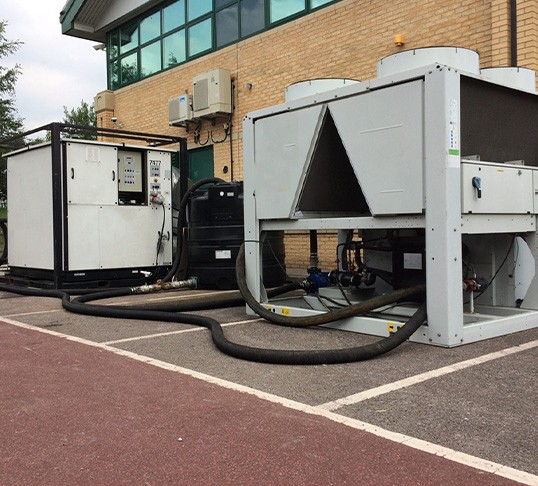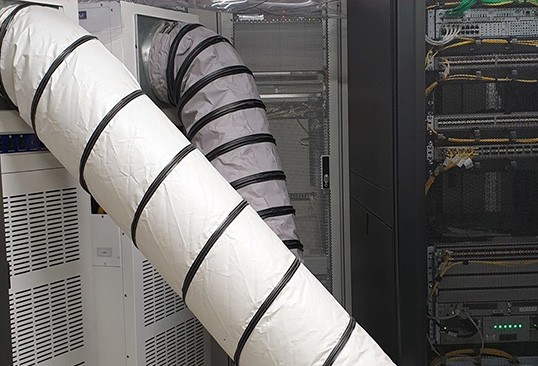Interruption to hot water and heating can have a significant impact on your business; halting production processes, potentially damaging stock and equipment and causing discomfort to visitors, employees and customers. The good news is disruption can be minimised with a little planning. It needn’t be stressful, especially as we talk you through considerations in this handy blog. Being well-informed and prepared means problems can be swiftly resolved with the minimum of fuss, stress, downtime and, importantly, costs.
Cost Effective Emergency Response
The fastest way to respond to unexpected heating failure may be to temporarily replace a boiler rather than wait for a repair or the purchase of a new unit. In these circumstances, emergency boiler hire or rental offers a range of benefits to customers. These include cost-effectiveness and flexibility. Rental can prove less costly than repair or replacement in the short to mid-term because packages can be tailored to meet specific needs. Rental can prove an effective way to maintain productivity and reduce potential revenue losses while avoiding excessive costs.
Reasons for Emergency Boiler Hire or Rental
Various scenarios can interrupt normal boiler operations and prompt a need for emergency hire. By recognising and planning for these situations, businesses can swiftly take steps to minimise negative impacts.

The first, and most obvious, of these is equipment failure. Boilers, and their components, can break without warning leading to a sudden lack of heating or hot water. In these cases, emergency boiler hire can provide an efficient temporary solution while you assess repair or replacement options. Emergency requirements don’t always result from total failure. It can also stem from downtime associated with unplanned maintenance and repair. A temporary hire solution can ensure this downtime doesn’t interrupt or disrupt heating or hot water provision.
Not all emergency hires are the result of equipment failure. Periods of excessive demand may also prompt an immediate need for additional boiler capacity. These could be related to environmental factors, excessive cold for example, or changes in production capacities and processes.
The final example of an unforeseen requirement for additional boiler capacity is disaster recovery. Floods, fires, severe weather or other ‘Acts of God’ can result in sudden boiler failure. Emergency boiler hire can provide a crucial temporary solution to keep your business going as part of a wider disaster recovery plan.
Selecting An Emergency Hire Provider
The best approach to disaster recovery is to have an emergency boiler rental provider pre-selected. This can save valuable time and effort should you require their services at any point. When selecting them, there are numerous factors to consider including the appropriateness of their equipment, the quality of their service and their knowledge and expertise. It is also important to assess the availability of equipment and their guaranteed response times. It is, of course, important to verify that the provider can deliver and install the required boiler within the timescales promised.
It is also good practice to assess the provider’s equipment inventory for yourself, checking for quality, performance and reliability. It is also worth confirming the qualifications and experience of the provider’s personnel. In particular, it is worth satisfying yourself that they have an understanding of boiler applications in your industry or sector and any specific heating requirements or regulations related to it.
Finally, emergency rental providers should have the capacity to provide comprehensive support, maintenance and repair so they can address any issues that arise during your hire agreement in a timely fashion.
A Step-By-Step Emergency Planning Guide
There are some best practices to consider that will help any emergency boiler rental or hire contract to succeed. They are shared below for your reference.
Proactive Planning. It is important to get on the front foot by selecting a reputable emergency boiler hire provider ahead of any issues. Once identified, it is advisable to agree on a response action plan with them that can be called upon should the worst happen.
Communication. Open lines of communication with your rental provider are vital. Should the worst happen, the ability to quickly and effectively explain your requirements will make your life easier and speed up any response.
Safety Considerations. It is critical to follow safety guidelines and regulations throughout the installation, operation and removal of any rental boiler. Being aware of them before any requirement will save you time and reduce any risks related to installation.
Performance Monitoring. Depending on the details of any hire package, conducting regular checks and reporting the results to your provider may be a requirement. Understanding, and undertaking, any performance monitoring instructions from your supplier is important to ensure optimal performance and help deliver prompt resolution of any issues.
End of Contract & Decommissioning
Just as effective planning for the installation of a temporary rental boiler can save time and money, planning for the end of the contract can give you peace of mind. It pays to have an understanding of the requirements for handing back the equipment once the rental term is complete.
Should the worst happen, hiring or renting temporary boiler solutions provides numerous benefits. These can be maximised by planning your response in partnership with a preferred supplier. Should you wish to discuss your requirements, feel free to contact our team of experts.



